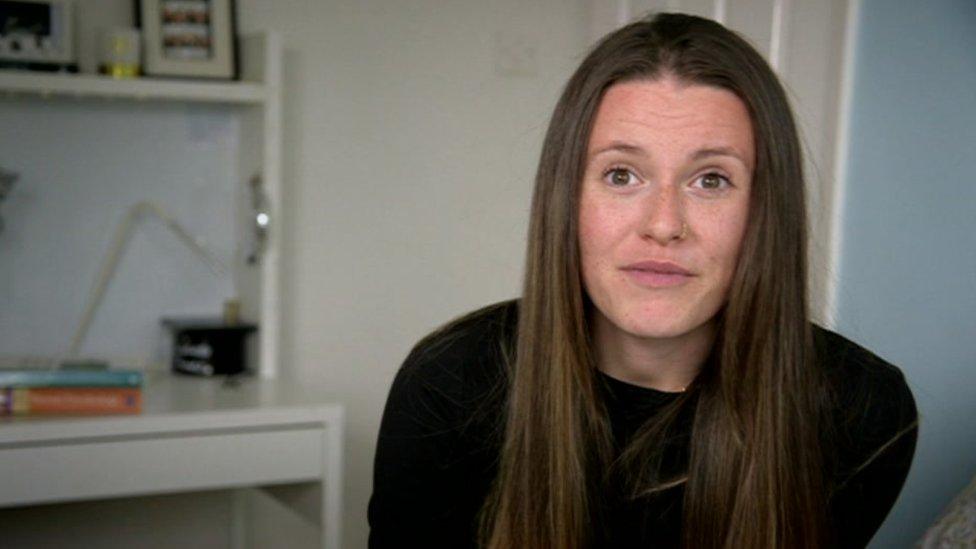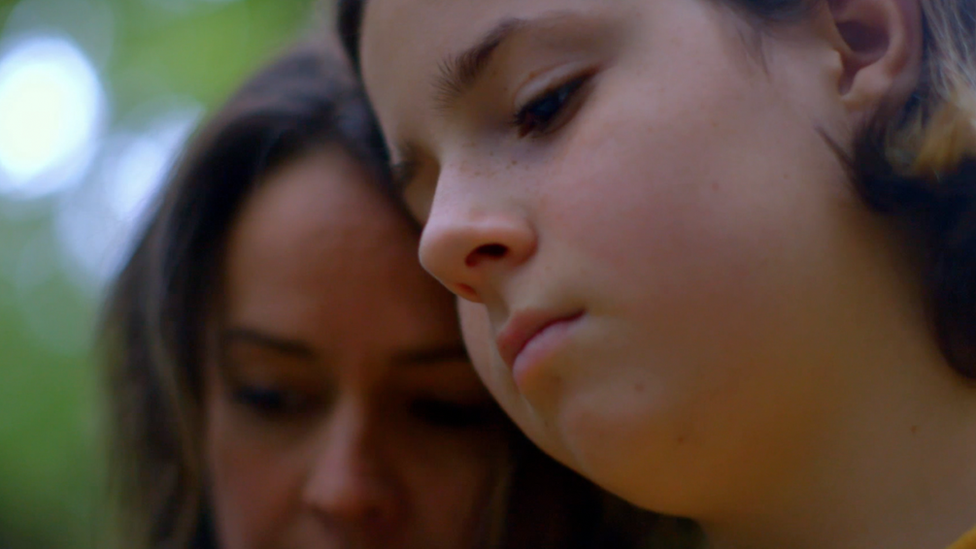Mental health: Five hour journey for anorexia help
- Published

Cerys was a happy, outgoing child until she developed anxiety five years ago
After being sent five hours from home for treatment for anorexia Cerys "cried her eyes out the entire night".
The 18-year-old from south Wales was sent to London as her local hospital had no specialist facilities to deal with eating disorders.
Since 2012, there has been an 8% rise in the number of children receiving mental health treatment outside Wales.
The Welsh Government said it was often necessary for children to attend "very specialist" centres in England.
Staff shortages have been identified as a major reason for the growing problem.
An investigation by BBC's Panorama programme has raised major questions as to whether child and adolescent mental health services in Wales and England are fit for purpose.
Cerys was a happy, outgoing child until she developed anxiety five years ago.
"Things started to build up so I found myself feeling more uncomfortable in social situations and uncomfortable going out into public places," she said.
"It got to the point where my anxiety was so overwhelming that I couldn't leave the house and I couldn't go to school."
She visited her GP three times before getting specialist help, by which point her illness had developed further.
"I started to develop symptoms of OCD [obsessive compulsive disorder] and it was all to do with my fear of contamination," she said.
"I would spend my days cleaning the entire house. Not long after that I started to diet, but it developed into anorexia.
"[My weight] was something I could control. Whereas I couldn't control these intrusive thoughts, focusing on the number going down on the scale gave me a distraction."
She was later admitted to the ward of a general hospital in Wales, but when they did not have the specialist facilities to deal with eating disorders, she was sent to London.
"Obviously going to a psychiatric hospital in itself is really scary, then being five hours away from home is really scary," she said. "Putting them both together is absolutely terrifying."
A report by the Children, Young People and Education Committee, external for the National Assembly for Wales, published in April, showed that the majority of those requiring highly specialist in-patient care still needed to travel to England to receive it.
It also highlighted an "unacceptable gap" in the provision of in-patient mental health services in north Wales due to recruitment challenges.
South Wales Police have called for better mental health education in schools after a rise in young people being detained under the Mental Health Act.
A Welsh Government spokesperson said: "We are committed to ensuring young people can access mental health services as close to home as possible.
"However, on occasions care is provided at very specialist centres in England that provide services for the whole of the UK."
Dr Jon Goldin of the Royal College of Psychiatrists added that there is a problem across the UK with young people transitioning into adult mental health services upon turning 18.
"Adult mental health services focus on adults with schizophrenia, bipolar disorder, major mental illness and young people often feel that that is not the kind of service they need," he said.
Cerys's initial request to transfer to adult services when she turned 18 was refused.
It was only when she was admitted to A&E that she was accepted.
"I did fight. I said 'I don't feel well enough yet… I want to go to adult services' but still it was a no," she said.
"It was only after a few trips to A&E when they realised [I] do need adult services.
"Unfortunately it's another waiting list to actually receive the therapy. Who knows [how long that will take]. I'm just hoping it will be before university."
- Published24 September 2018

- Published4 July 2018

- Published26 April 2018

- Published10 January 2018

- Published19 December 2017

- Published17 September 2017
